April 15-19th, 2024 – Kenya
From April 15th to 19th, 2024, delegates from the Pacific region, including Vanuatu, Fiji, and Papua New Guinea, traveled to Kenya on a knowledge exchange visit. The mission was to evaluate the potential for insect-based livestock feed production using the Black Soldier Fly (BSF) and to explore opportunities for collaboration in advancing circular economy practices.
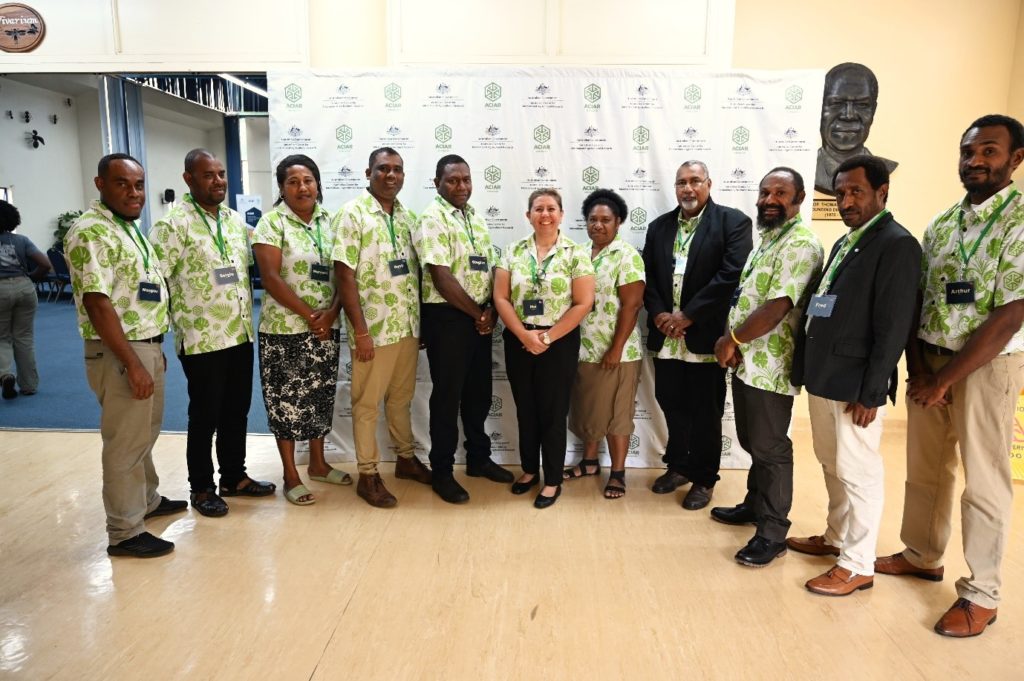
Visiting delegates from the Pacific region (Vanuatu, Fiji, and Papua New Guinea). Photo credit: ACIAR (May Muthuri/ACIAR).
The team visited the International Centre of Insect Physiology and Ecology (ICIPE), where they met with experts from the Insects for Food, Feed and Other Uses Program. Discussions covered the implementation of technology, scientific advancements, and the impact of BSF on Kenya’s circular economy.

Pacific and ACIAR Team with Dr. Abdou Tenkouano, Director General of ICIPE. Photo credit: ACIAR (May Muthuri/ACIAR).
Field visits to local farms demonstrated the practical uses of BSF technology in poultry, swine, and aquaculture feed, as well as in organic waste management. These experiences showcased the real-world benefits and challenges of adopting BSF technology.
The School of Agriculture at the PNGUoT is set to benefit significantly from this initiative. Proposed projects include incorporating BSF studies into the Animal Science curriculum and developing research focused on BSF applications in livestock feed and organic fertilizer production.
Field visits were a significant part of the trip, allowing the delegates to see firsthand how local farmers utilize BSF for animal feed and organic waste management. These visits highlighted the technology’s practical benefits and the challenges faced by end-users.
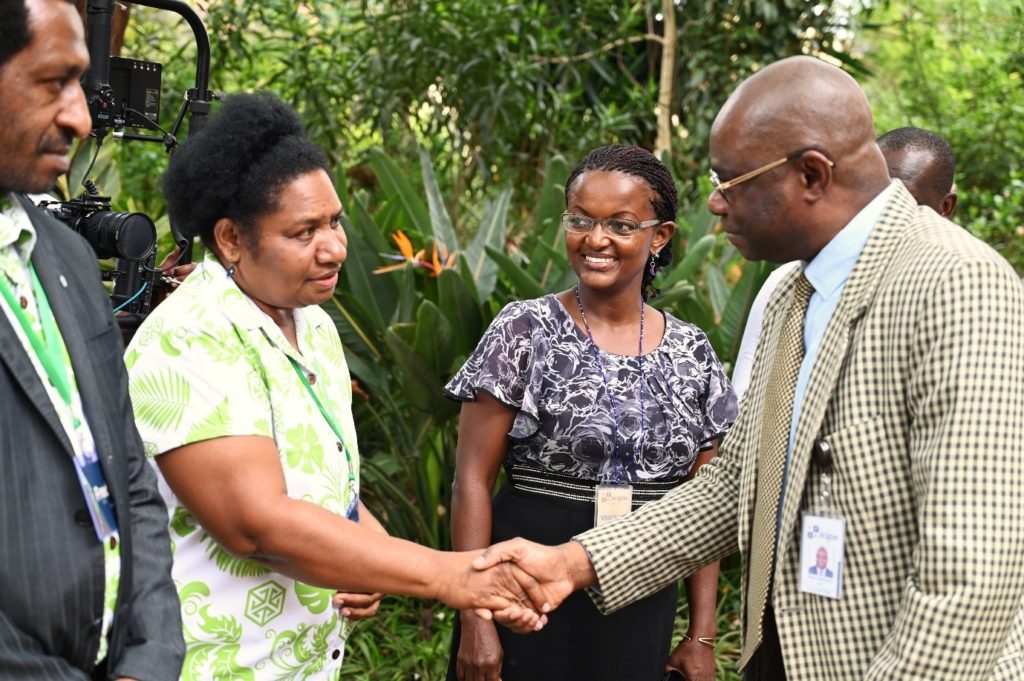
Dr. Janet Pandi of the School of Agriculture, PNGUoT meeting with Dr. Abdou Tenkouano, DG of ICIPE.
During the visit, there were extensive discussions on potential training and research collaborations, particularly focusing on capacity building for postgraduate students from the School of Agriculture.

Ms. Faith Nyamu, Research Officer at ICIPE, discussing the rearing of BSF with the visiting team. Photo credit to ACIAR (May Muthuri/ACIAR).
The delegation returned with actionable insights and plans for a reciprocal visit from Kenyan experts to the Pacific to further discuss and implement BSF technology.

Dr. Chrysantus Tanga, Senior Scientist and Head of ICIPE’s Insects for Food, Feed and Other Uses Program, welcoming the visiting team. Photo credit to ACIAR (May Muthuri/ACIAR).
To maintain momentum, the School of Agriculture has been tasked with developing a research concept note to seek funding for a collaborative project involving three Pacific countries and ICIPE.
Feed Products Made from BSF
For Livestock and Pet Animals

Fruss fertilizer
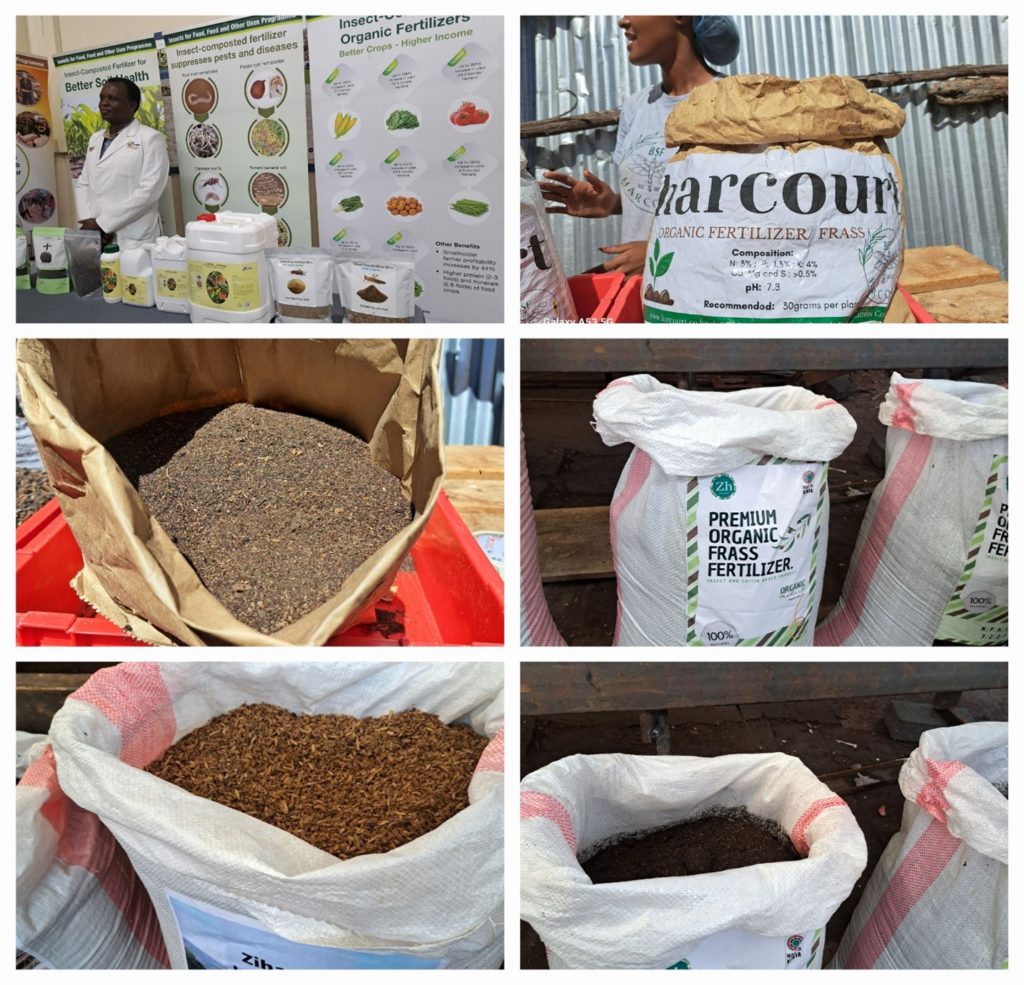

Field visit to INSECTIPRO, Redhill, Limuru, Kenya, showcasing large-scale BSF production. Photo credit: ACIAR (May Muthuri/ACIAR).

Visit to Zihanga Limited, Lower Kabete, Kiambu County, Kenya. Zihanga Limited recycles over 5000vMT of organic waste, trained over 300 youths on BSF rearing .Photo credit to ACIAR (May Muthuri/ACIAR).
Black Soldier Fly (Hermetia illucens).
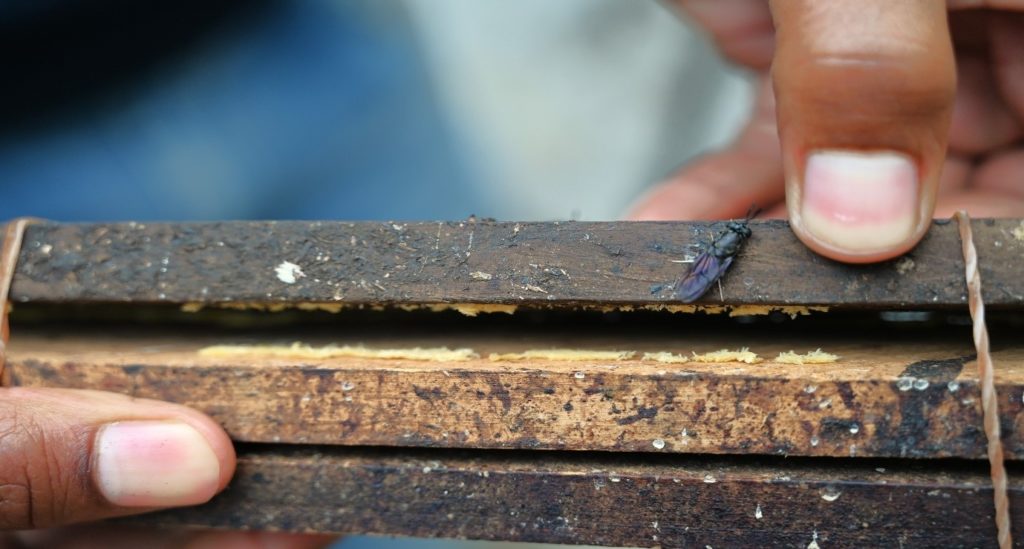
BSF with eggs Photo credit to ACIAR (May Muthuri/ACIAR).
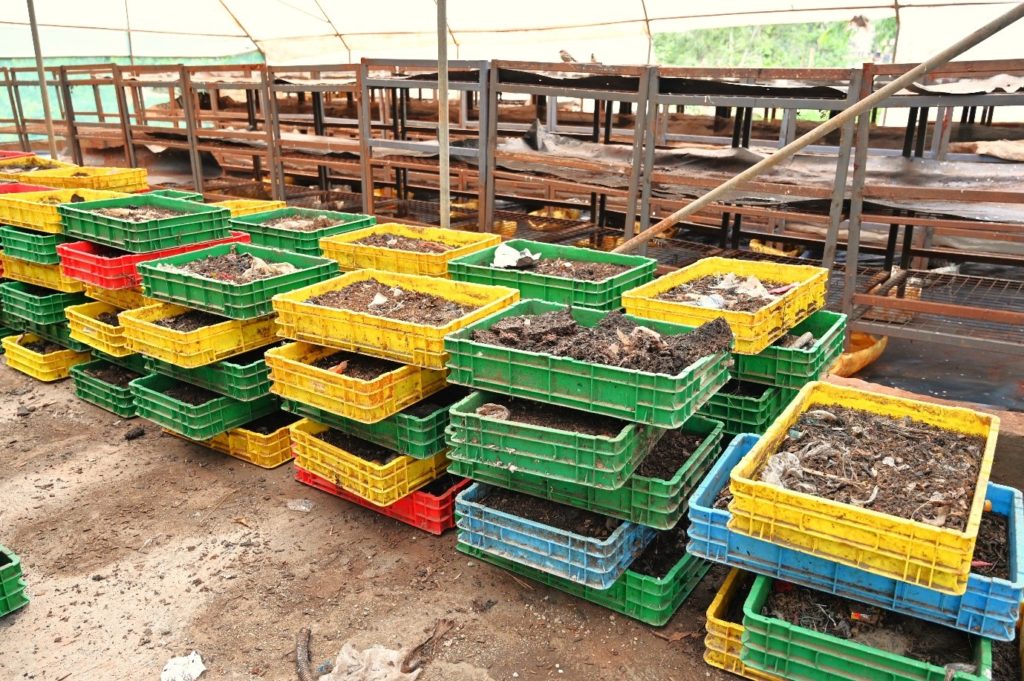
Trays with organic substrates for BSFL at Zihanga Limited, Lower Kabete, Kiambu County, Kenya. Photo credit to ACIAR (May Muthuri/ACIAR).
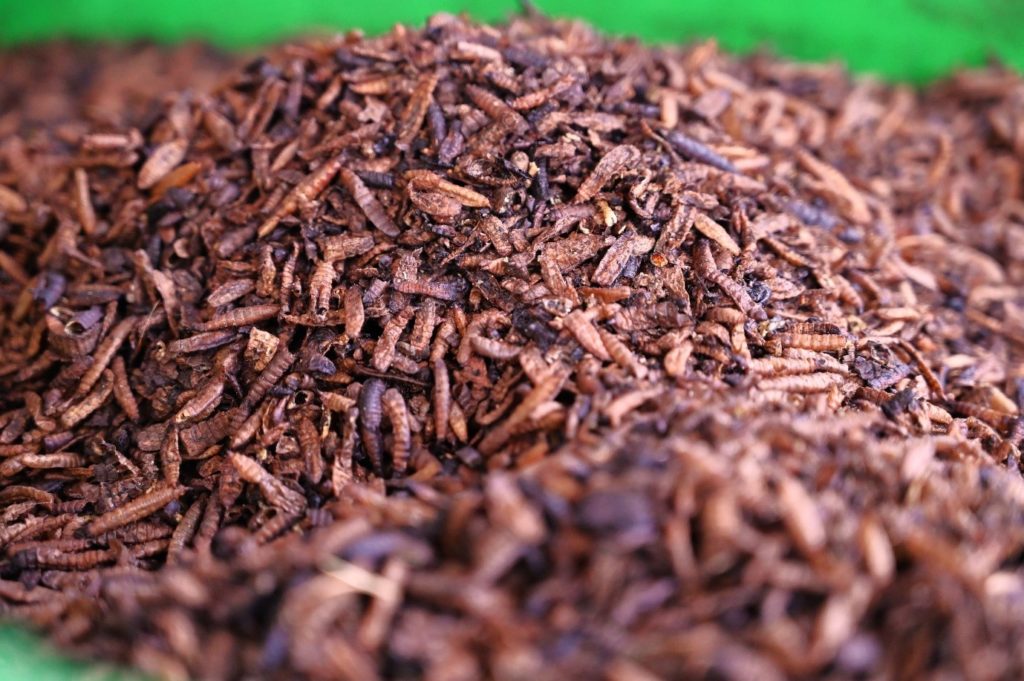
Dried BSFL at Harcourts Agri-Eco Farm Limited. This company collects organic wastes for BSF farming and also conducts farmer training on BSF rearing. Products of BSF rearing are wet and dried larvae, Organic fertiliser and pupae shells.
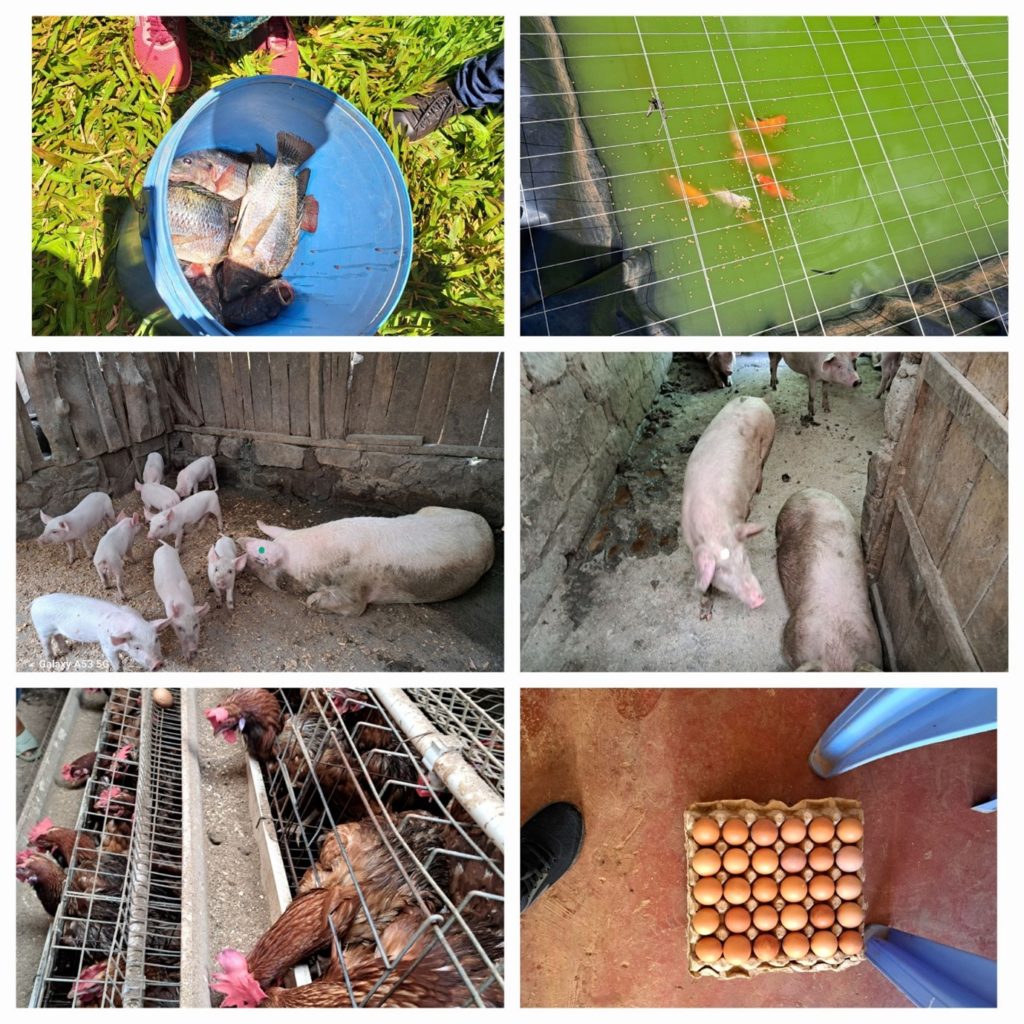

Pacific Team with the Australian Head of Mission- Ms Jenny Da Rin (5th from left) and the ACIAR Regional Manager- Eastern and Southern Africa -Dr. Leah Ndungu 2nd from right).
The visit underscores a significant step towards sustainable agricultural practices in the Pacific, promoting international cooperation in research and capacity building. The School of Agriculture is excited to advance these initiatives, enhancing the curriculum and providing invaluable research opportunities to its students.
